More than 75,000 STEM lessons will be delivered in the 2022-2023 school year.
Speaking at the opening of the workshop, Deputy Minister Pham Ngoc Thuong emphasized the role and importance of developing STEMeducation in current general education institutions.
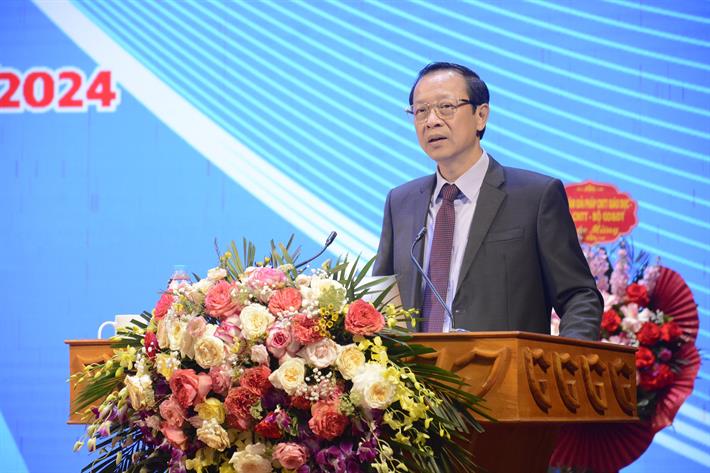 |
Deputy Minister Pham Ngoc Thuong delivered the opening speech at the Workshop.
The Deputy Minister said that in recent times, the Ministry of Education and Training has given very specific instructions, leadership, and attention through documents on piloting and implementing STEM education in schools. Therefore, the workshop is a place for schools and teachers to raise advantages, difficulties, discuss, and propose solutions to promote and improve the quality of STEM education in general education.
At the workshop, Director of the Department of Secondary Education Nguyen Xuan Thanh said: STEM education in general education through scientific research activities of students has been implemented since 2006 in some localities. In recent years, the Ministry of Education and Training has organized workshops and training for managers and key teachers to implement STEM education. This has helped managers and secondary school teachers grasp the content, methods and forms of implementing STEM education activities effectively.
The Director of the Department of Secondary Education stated: STEM education in secondary schools has brought about important results, contributing to innovation in teaching methods and forms, linking school education with solving practical problems, promoting students' positivity, creativity and autonomy, contributing to the formation and development of students' capacity and qualities, in line with the orientation of fundamental and comprehensive innovation in general education.
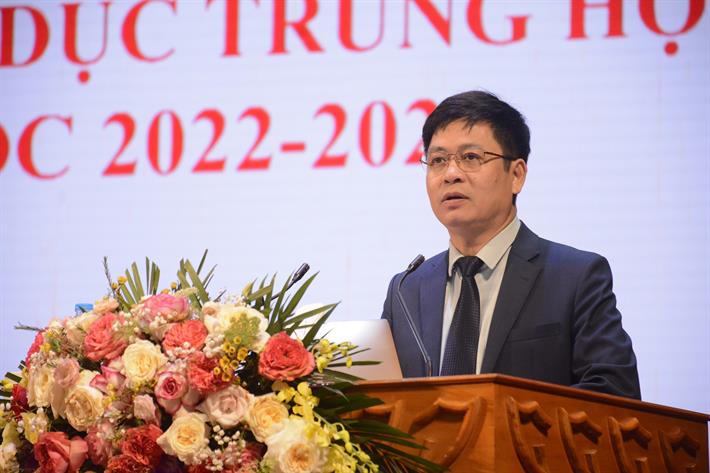 |
Director of Secondary Education Department Nguyen Xuan Thanh informed at the workshop
The number of schools implementing STEM lessons increased compared to the statistics at the 2021, 2022 and 2023 Conferences of the Ministry of Education and Training, along with the innovation of teaching methods in schools. Professional groups and teams develop STEM teaching topics, interdisciplinary integrated teaching, teaching through lesson research and include them in the group's and team's educational plans from the beginning of the school year, which are implemented in all high schools. In the 2022-2023 school year alone, more than 75,000 STEM lessons were implemented in secondary education institutions nationwide.
Although many important results have been achieved, during the implementation process, according to Director Nguyen Xuan Thanh, the construction and implementation of STEM lessons still revealed some limitations such as students participating mostly in the experimental part, the design and construction of experimental plans to solve the discovered problems are still limited; there are not many opportunities for students to apply the knowledge learned from the subject program to solve practical situations; most of the lessons are technical STEM, making tools, students follow a predetermined process, scientific STEM lessons are rarely implemented.
Sharing at the workshop, a representative of the Hai Phong Department of Education and Training said: In the 2023-2024 school year, the Hai Phong Department of Education and Training will implement STEM education for primary schools to create a seamless STEM education. 100% of secondary schools have implemented STEM education in the form of STEM lesson topics and STEM education activities associated with the content of subjects. Many teachers have innovated regular testing and assessment methods in the new form of evaluating STEM products through assessment forms while organizing STEM education activities. At the same time, teachers have applied active teaching methods to teach STEM topics.
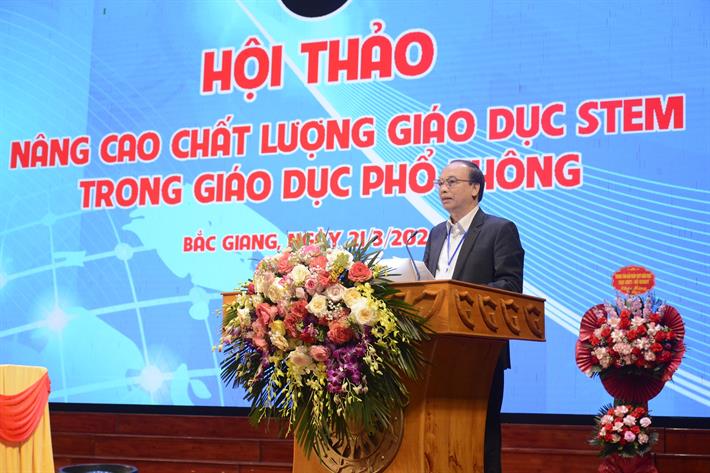 |
Representatives of Departments of Education and Training discussed at the Workshop
Considering STEM education as one of the key tasks of the school year, after more than 3 years of implementation in Dak Lak province, STEM education has become increasingly close and familiar in every school, teacher and student from the central region to remote areas. A representative of the Department of Education and Training of Dak Lak province informed: In order to effectively implement STEM education, the Department of Education and Training has issued documents to direct, disseminate and thoroughly implement the STEM spirit to schools. Accordingly, schools have developed flexible and proactive teaching plans and STEM education plans, suitable to the conditions of the school and locality.
Be proactive, creative, and stress-free when implementing STEM.
At the workshop, representatives of the Departments of Education and Training, managers, and key teachers implementing STEM education in schools discussed, proposed ideas and solutions to improve the quality of STEM education in general education around issues such as STEM education content, facilities, scientific research, education plans, training and development of teachers, implementation costs, etc.
Concluding the workshop, Deputy Minister Pham Ngoc Thuong highly appreciated the initiative and positivity of the Departments of Education and Training, teachers and experts in the process of implementing STEM education activities in schools. Although implemented with different models, the Departments and schools have focused on clarifying the advantages and limitations of the implementation process.
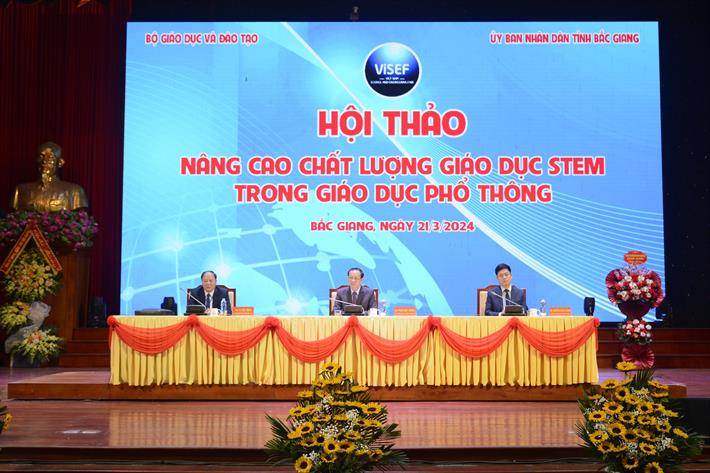 |
Deputy Minister Pham Ngoc Thuong chaired the discussion at the Workshop.
Emphasizing the proactive, creative, pioneering role of the teaching staff, the Deputy Minister of Education and Training stated that to achieve remarkable results at this time, there is a very important contribution from the management staff and teachers at schools. Therefore, individuals and groups with positive, creative contributions need to be evaluated, recognized, and encouraged within the team.
The Deputy Minister said that applying science and technology to life has become an inevitable trend. This is very clear in the direction of the Party and State on the issue of training human resources for the country. Therefore, promoting STEM education in general schools is the foundation for creating high-quality human resources for the country in the future.
From the implementation in the past time, the Deputy Minister assessed that the awareness of STEM in education and society is not adequate, and has not received due attention. In addition, the communication work on this activity is not really good, so the society does not fully understand the content. From that reality, the Deputy Minister suggested that it is necessary to continue raising awareness for managers, teachers, students, parents and society to understand STEM.
According to the Deputy Minister, STEM in general education is science, technology, and mathematics at the general level, so it must be suitable for the subjects, ages, and goals of high school students. Teachers and experts are the guides, and students must be the main subjects in this educational activity. Lessons, activities, and projects must be easy to do, easy to implement, suitable for the characteristics of students' ages, making the most of the school's existing facilities to implement and not imposing adult thinking and problem-solving thinking on high school students.
The Deputy Minister requested that units under the Ministry of Education and Training absorb opinions at the workshop, research and develop training modules for core teachers on implementing STEM education in schools. Continue to monitor and advise the leaders of the Ministry of Education and Training on direction and implementation. In addition, specialized units need to research to have a more systematic summary and assessment of STEM education.
For the Departments of Education and Training, schools need to continue to closely follow the directives and guidelines of the Ministry of Education and Training and implement them creatively, in accordance with local conditions. The Departments of Education and Training and schools must identify this as a key task and a task that needs to be implemented in the 2018 General Education Program. Be ready to give feedback to the Ministry of Education and Training to effectively replicate the implementation process.
Emphasizing the initiative of the teaching staff, the Deputy Minister noted that the team needs to be trained, exchanged and promoted inspection and evaluation at the facilities. In addition to the training programs and instructions of the Ministry and Department, schools should proactively conduct training at the grassroots level. During the training process, the quality of teaching and learning can be improved and difficulties can be promptly resolved.
In addition, the Deputy Minister also noted that the Departments of Education and Training and schools should proactively develop diverse and rich forms of implementing STEM activities. In particular, in the process of directing and organizing, there should be no pressure or expense on schools, teachers, and parents. Along with that, it is necessary to promote the mobilization of organizations, individuals, and businesses to participate in STEM education activities.
Source




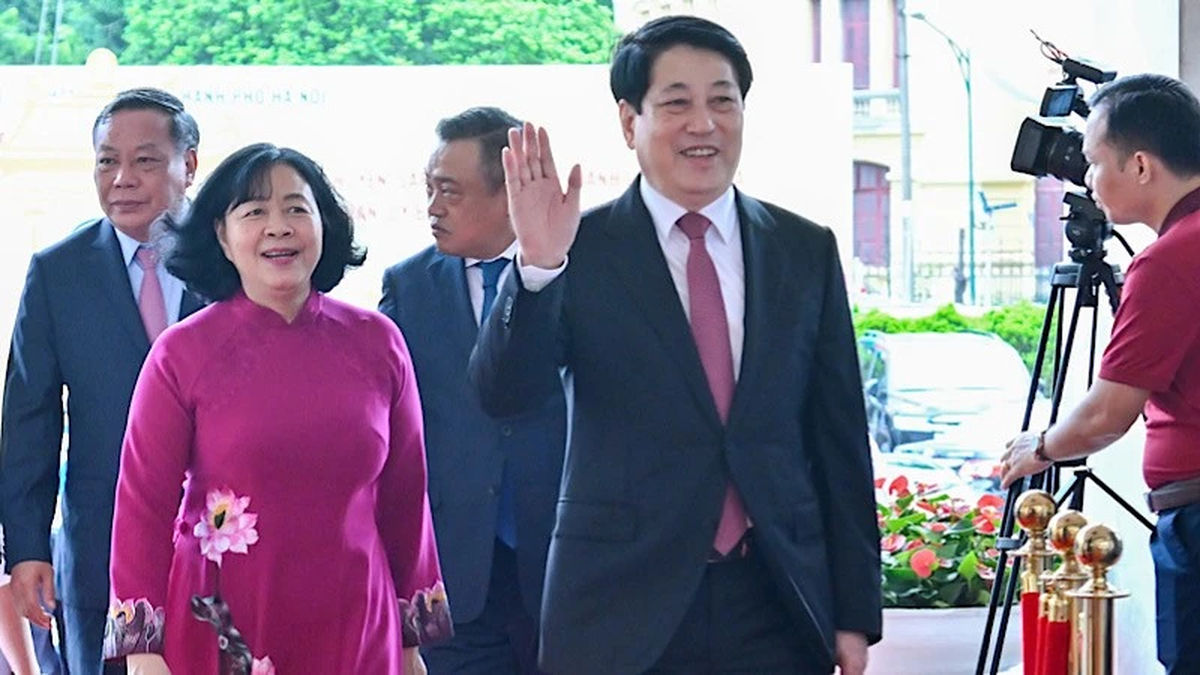

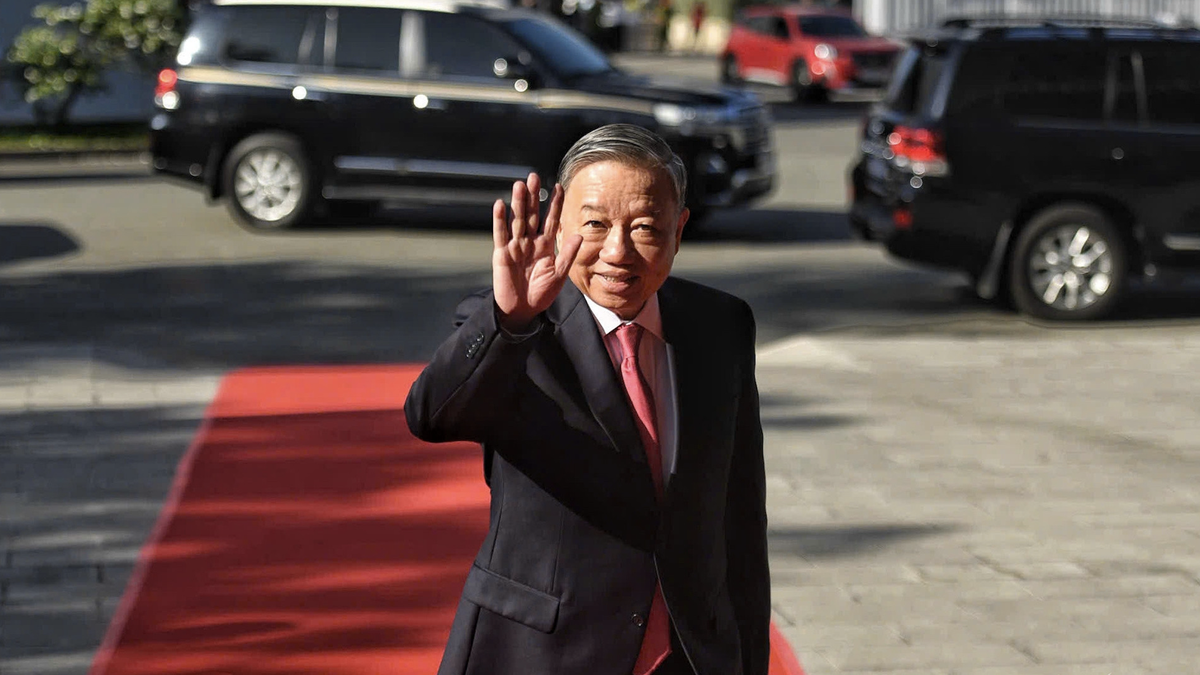



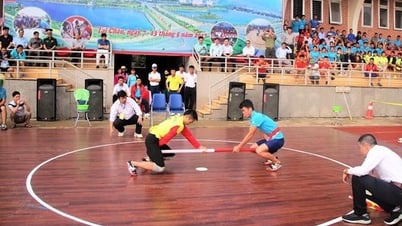

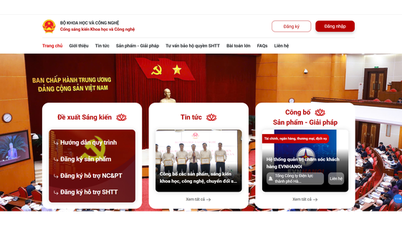

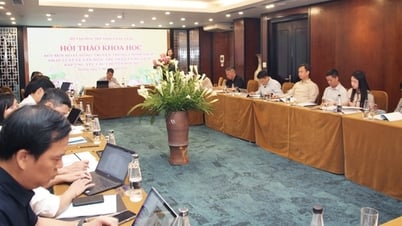





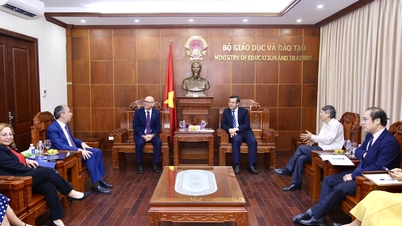
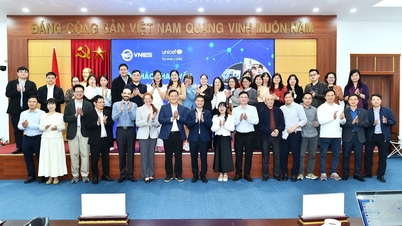
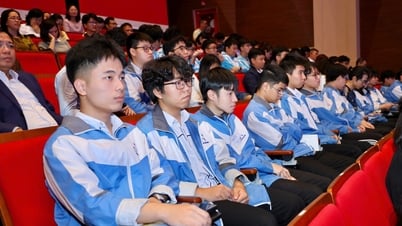


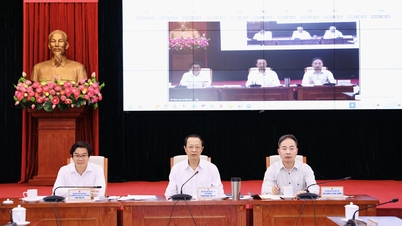




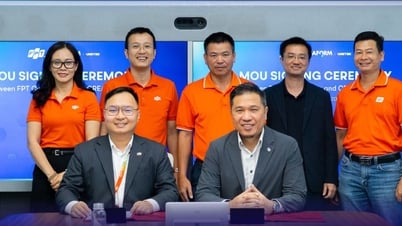



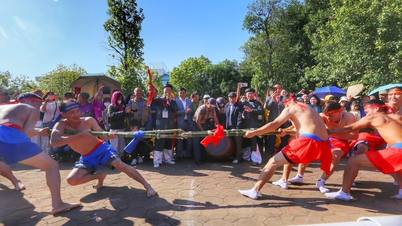






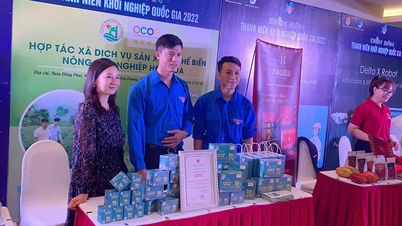





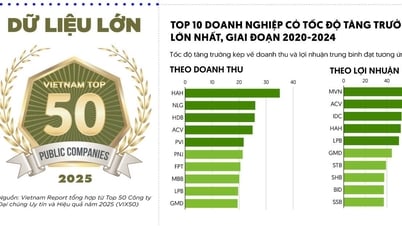

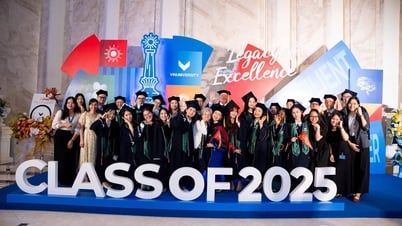


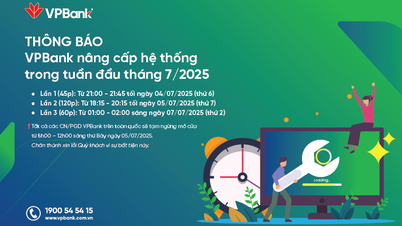
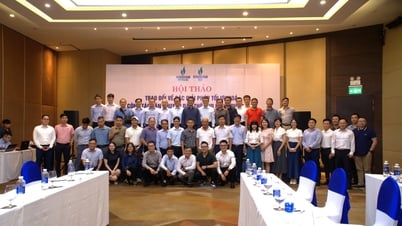
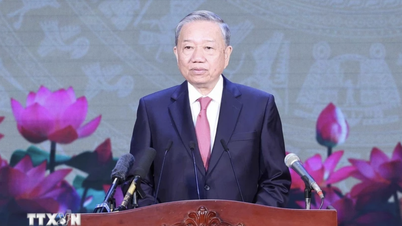
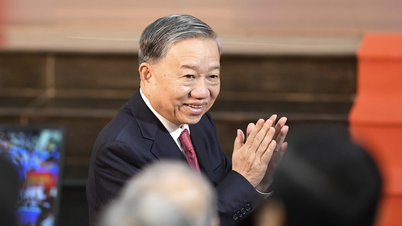

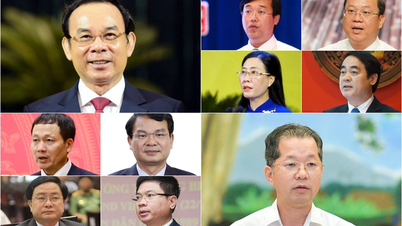

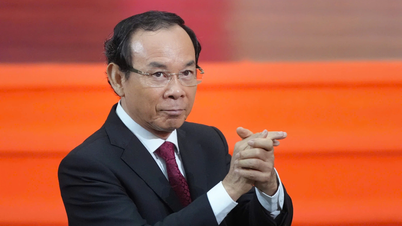

![[Photo] General Secretary attends the announcement ceremony of Resolutions on merging administrative units in Ho Chi Minh City](https://vphoto.vietnam.vn/thumb/402x226/vietnam/resource/IMAGE/2025/6/30/ab1bd03cc8bb4f60b2665f4915f258c5)
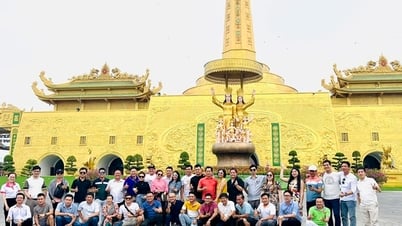


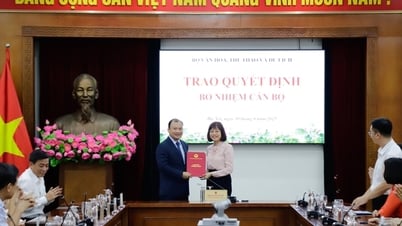
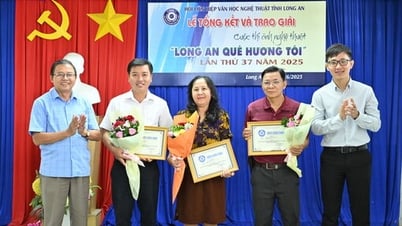

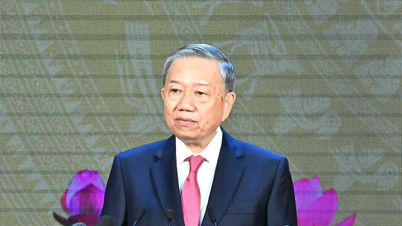

















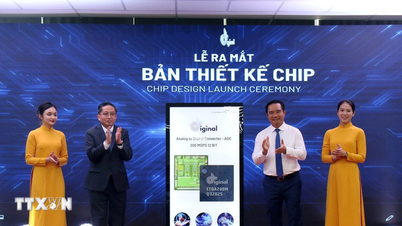
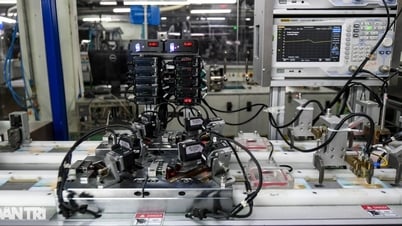





Comment (0)